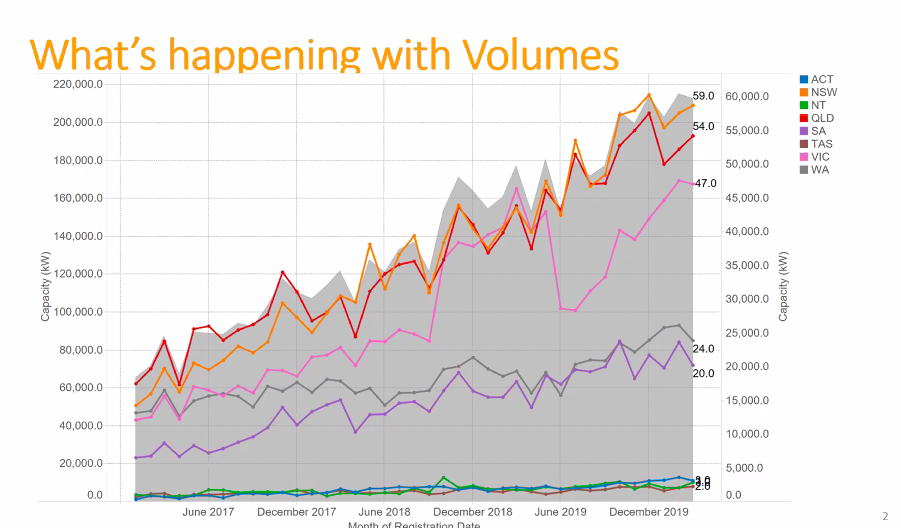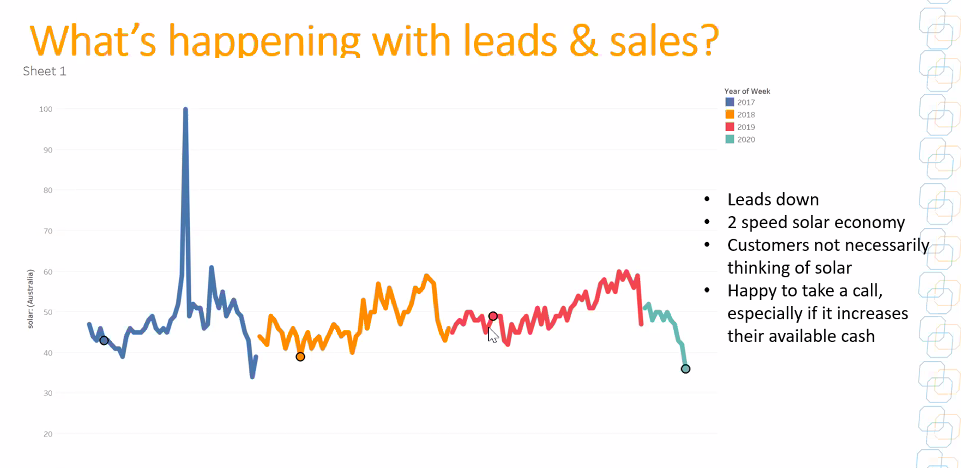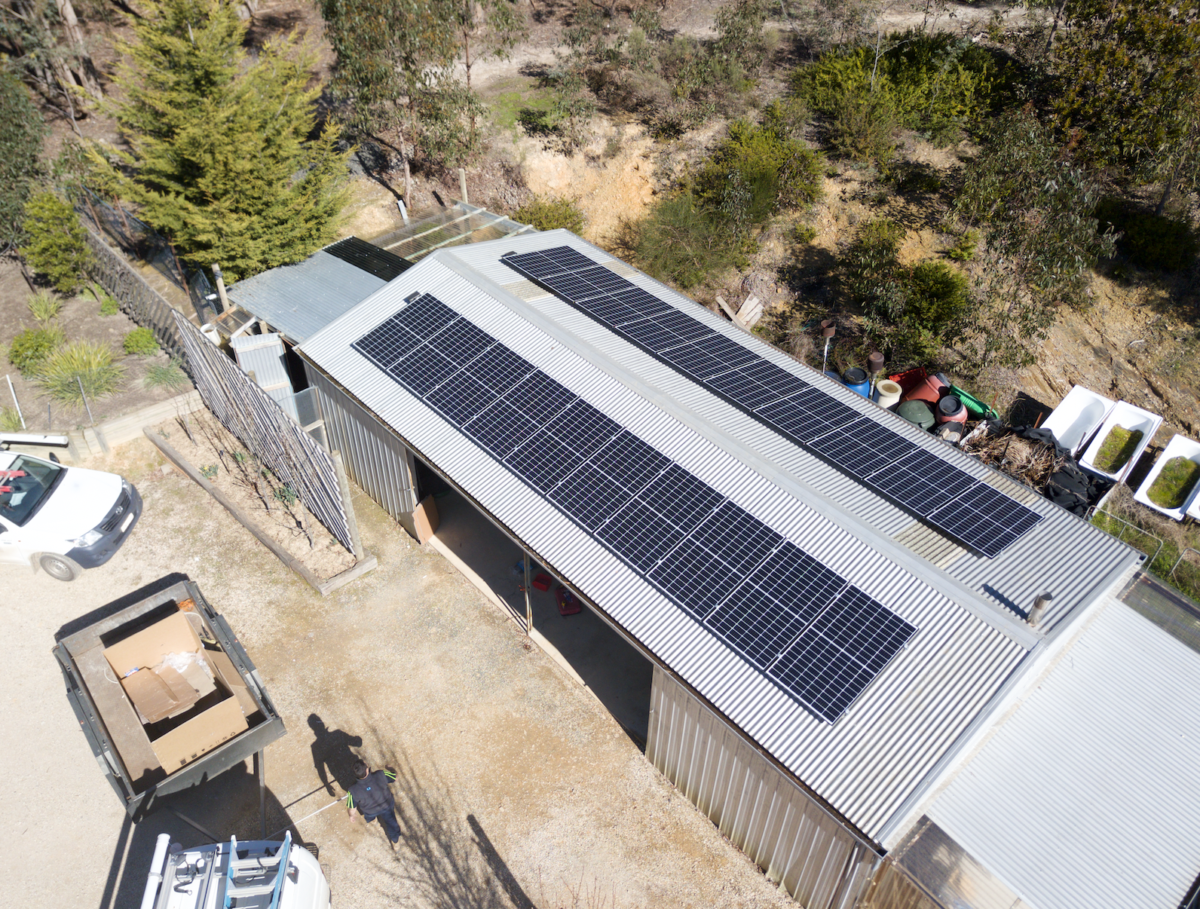It appears that an apparent lifeline to the rooftop solar segment will be cut off. During a Monday webinar briefing installers as to what expect as Covid-19 restrictions intensify, Clean Energy Council (CEC) chief executive Kane Thornton reported that he is not hopeful that new solar installs will be categorized as an essential service if lockdowns tighten.
If solar was to be recognised by government as being an essential service, rooftop solar installations could continue even if business activity was further restricted. While Australia, on both a state or federal level, has not adopted some of the extreme measurers targeted at limiting the spread of Covid-19 seen in places such as Italy, France and the United Kingdom, Thornton noted that the “trend is towards the government putting in more restrictions.
“For a grid-connected home, one would have to argue that a solar installation is essential and not discretionary, [and] my suspicion is that will be a hard argument to make,” said Thornton.
The head of the CEC said that it would be easier to make the case that the installation of an offgrid system being installed in a bushfire affected region, or even O&M being carried out an existing rooftop PV array are essential services.
The webinar was hosted by Energetic Consulting, and it brought together Thornton from the CEC, with the Smart Energy Council’s John Grimes, Warwick Johnston from SunWiz, Durmus Yildiz from Baywa r.e. Solar Solutions, and Dean Mannix from Better Solar Sales. The free event brought in a host of sponsors and raised $6000 for St Vincent de Paul.


Baywa’s Durmus said that he anticipates a demand decline of around 20-25% this year – although it is a decline off the record highs the rooftop segment was registering in the early stages of 2020. Solar market analysts globally have reduced their forecasts for 2020, the latest being Rystad Energy that revised down its global total for the year from 140 GW to something approaching the 2019 total of 126 GW. Durmus spoke of a large offgrid project with which his company was involved being pushed back until 2021. “The health of the [indigenous] community is more important, so it will be … delayed until next year.”
Dean Mannix of Better Solar Sales gave installation businesses in attendance some advice for securing sales and recommended that they provide home and business owners with a sense of security during these unprecedented times. “Certainty of paying lower [power] bills,” said Mannix. “This is going to have much more impact that it previously did.” He also pointed to opportunities in partnering with financing providers as customer cashflow potentially dries up.
An upside to the downturn was also noted by Mannix during the online event. He said that households may be looking to make home improvements, add to the value of their property, and that this could include a rooftop solar system. “Bunnings are absolutely smashing it,” he said – referring to the major DIY materials and garden supplier’s sales amidst the crisis.
Another positive was supplied by John Grimes, the CEO of the Smart Energy Council. He said that a quiet period offers an opportunity for professional development and training. “During these periods when they’re going to be locked down,” said Grimes, “it could be time well spent.” For installers facing the prospect of having to stand down staff, or are struggling to retain them, Grimes said that the Federal Government’s $130 billion ‘job keeper program’, announced while the event underway, could assist with covering wage shortfalls.
This content is protected by copyright and may not be reused. If you want to cooperate with us and would like to reuse some of our content, please contact: editors@pv-magazine.com.









1 comment
By submitting this form you agree to pv magazine using your data for the purposes of publishing your comment.
Your personal data will only be disclosed or otherwise transmitted to third parties for the purposes of spam filtering or if this is necessary for technical maintenance of the website. Any other transfer to third parties will not take place unless this is justified on the basis of applicable data protection regulations or if pv magazine is legally obliged to do so.
You may revoke this consent at any time with effect for the future, in which case your personal data will be deleted immediately. Otherwise, your data will be deleted if pv magazine has processed your request or the purpose of data storage is fulfilled.
Further information on data privacy can be found in our Data Protection Policy.